Mobile Homes, Who's Afraid of Virginia Woolf and Hollywood
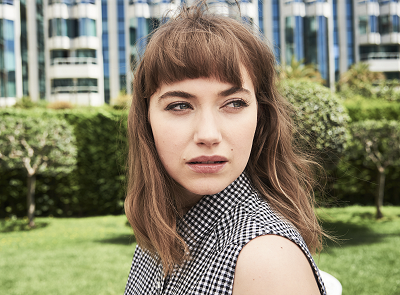
With her jagged smile and pointed nose, this 27-year-old British actress has a face you don’t forget. In the past decade, she has played every kind of role imaginable. She has been in horror films (28 Weeks Later), a teen romcom with Zac Efron (That Awkward Moment); comedy (She’s Funny That Way), experimental art-house drama (Terrence Malick’s Knight Of Cups), brutal indie fare (Green Room), Irvine Welsh adaptations, biopics and even a car racing movie (Need For Speed). She can do rebels, ingénues, screwball characters or tragic heroines.
At Cannes, Poots was basking in the sun, showing no sign of tiredness. Given that she only arrived at the festival a few hours before and was due to head back to London not long after the interview ended, her relaxed demeanour came as a surprise. The British actress is currently appearing on stage in London in a production of Who’s Afraid Of Virginia Woolf? opposite Imelda Staunton, Conleth Hill and Luke Treadaway. She was on stage at the Harold Pinter Theatre late on Saturday night, flew out to Nice in the morning, and would be back in London for the next performance on Monday.
“It’s a long play, nearly three hours. We finished it last night around 11pm. Tomorrow, we start again,” she says. Not that she’s complaining. “Who’s Afraid Of Virginia Woolf? is a masterpiece and each night listening to it, it’s such a rich experience. You take so much from that writing, that material, and you can continue to get deeper and deeper into it the more you do it,” she says, sounding more like a student of the play than one of its stars.
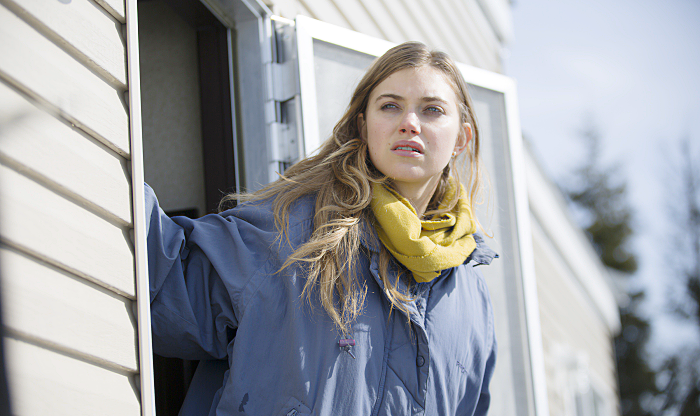
Poots is clearly used to duress and hard work. The film which she is in Cannes to promote, Vladimir De Fontenay’s Mobile Homes, was shot in a remote part of Canada in the dead of winter and was a considerable trial of endurance in its own right. In the film, Poots plays Ali, a young mother who lives a hand-to-mouth existence as she travels across country with her son in tow. Her lover Evan (Callum Turner) is charismatic, good looking but a manipulative petty thief and drug dealer who treats her very badly.
The film was clearly a challenge for Poots. First, there was the setting. “The weather, the circumstances in which we made the film were so harsh … the conditions sucked! It was during the Arctic vortex in Canada, so it was freezing, freezing, freezing all the time,” she says, pretending to shiver.
Then there was the role itself. In the course of the film, there are graphic and brutal sex scenes, moments in which Poots is plunged into icy water and scenes when she is forced to flee her vengeful, headbanging lover. She has to wash in public toilets. In one scene, we see her trying to look after her hair using a Dyson hand-dryer. Glamorous, the film is not.

I ask her about Ali’s relationship with the abusive, Heathcliff-like delinquent played in flamboyant fashion by Turner in Mobile Homes. “It’s toxic,” she says with enthusiasm. “He’s certainly a noxious presence in her life.” That noxiousness is strangely attractive. She despises him but can’t resist him.
In the film, Ali is desperately trying to find a home for herself and her son. Evan may betray her but he is as close as she comes to having a stable presence. She sticks with him even when she knows she shouldn’t. Her character is needy, erratic and makes some very bad decisions.
The actress takes it all in her stride. After all, she relishes strung-out characters. Ali may be poor and homeless but otherwise isn’t so far removed from Poots’s role as Debbie Raymond, the beautiful but self-destructive daughter of porn mogul Paul Raymond in The Look Of Love or from her role as Jess, a suicidal woman, in A Long Way Down.
Poots is generally game for anything. She had never done a play before Who’s Afraid Of Virginia Wolf? but that didn’t put her off in the slightest. Nor was she wary about taking the part in Mobile Homes. She’d far rather accept a role in a challenging, low-budget indie movie than waste her time in mainstream Hollywood fare.
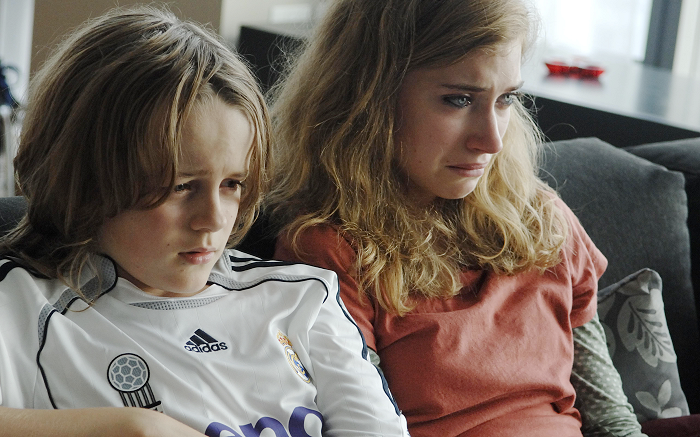
“I think Hollywood is still struggling with the idea of the female anti-hero,” she suggests. “It is almost trendy to talk about this notion of the strong female character but actually we want weak female characters and flawed female characters. Equating strength with something interesting doesn’t make sense to me. I think Hollywood has a long, long way to go. Independent films allow you to take risks. Independent film is where you find the most inspiring scripts. They make them for nothing and so you have more creative control.”
It’s a decade now since the Hammersmith-born actress’s breakthrough role in London-based zombie movie, 28 Weeks Later (2007). Since then, she has established herself as one of the most versatile and adventurous screen stars of her generation. As she puts it, “You always seek diversity and risk. Otherwise… why bother?”
Yes, she likes the glamour of the movie business – but only to a limited extent. “It’s nice to wear nice clothes but there again, I’ve always liked to wear things that interest me rather than that flatter me or make me look pretty,” she says. “Why would you ever want to seek vanity? That’s stupid and futile. Go and do something else. I don’t see the point in any of that. I think it’s pretty stupid to want to be pretty.” That seems disingenuous given that she manifestly is pretty – but she makes it very clear she doesn’t want to take roles based on her looks.
Poots talks of the “magical” feeling she experiences when she receives a costume for a role and how that helps her mould a performance. “It’s a really glorious feeling because you don’t feel like you.” In Mobile Homes, it was her decision that Ali should have braids in her hair. She consulted closely with the director about what the character wore and how she looked.
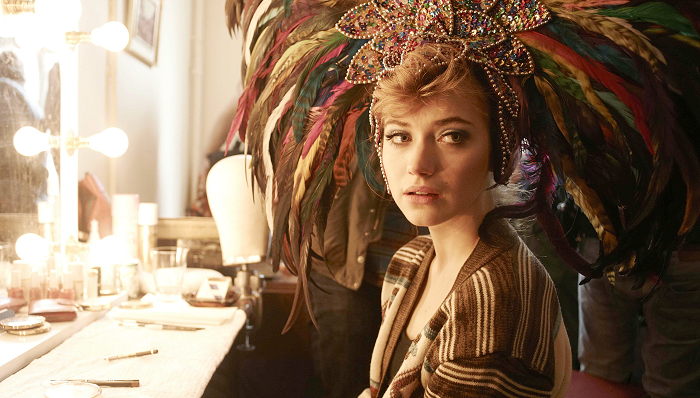
She throws herself into her projects in such an intense way that’s it’s sometimes a struggle to move on. “After a film, you want to wear something similar to what you’ve been wearing. I remember after Green Room [Jeremy Saunier’s redneck thriller], I really wanted to wear certain things but then (thought) no, you can’t wear that. That’s white supremacy shit!”
The actress doesn’t take her profession lightly. “Movies have always been important,” Poots says, and she dismisses the idea that cinema is ever mere escapism. What she asks from her collaborators is that they’re “up for it” – that they’ll be ready to throw themselves into projects in the same fearless way that she does. On Mobile Homes, that was certainly the case. “Everybody had to be with that budget and schedule.”
Poots’ time to talk is limited. She is only in town for the day and has to get back to London for the next performances of Virginia Woolf. It’s a schedule that would drive less resilient actors toward breakdown. Poots, though, is thriving. As a teenager, she may once have toyed for a few moments with the idea of becoming a vet but it is apparent that she’s now in the profession she loves – and enduring sub-zero temperatures or being forced to go on day trips to Cannes to speak to the press is a small price to pay for staying in it.







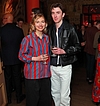
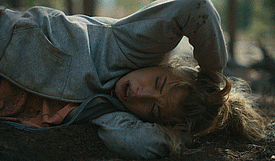





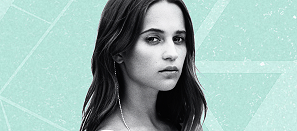






Recent Comments